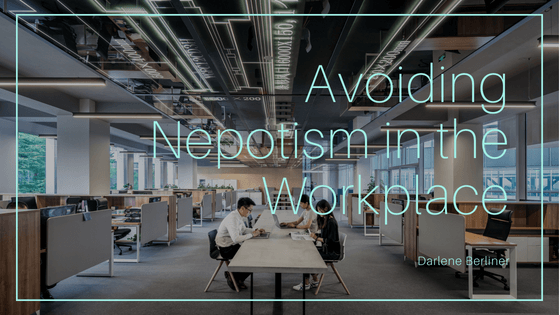While many HR challenges can be attributed to recent advancements in technology or to generational differences, the issue of nepotism in the workplace is one that can be be traced back decades ago. Although the negative impact of nepotism is magnified depending on the size of the company, the issue itself is one that can, and does, impact a company with as few as five employees, and as many as 500,000 employees.
To help HR professionals and managers avoid potential fallout from nepotism in the workplace, consider the following three tips to safeguard your company from nepotism impacting your culture and bottom line.
- Establish and Sustain Training on Nepotism Policy:
As is the case with many workplace challenges, organizations become reactionary and form a nepotism policy only after a problem or concern has arisen. At this point, the damage has been done and employees have likely lost trust in management. As your company grows and adds additional layers of management, consider creating a document that addresses what is acceptable and unacceptable. In most organizations, a company romance policy is included within the nepotism policy. Maintaining such a policy not only prevents issues, but can also help establish employee expectations.
Once you have implemented a nepotism policy, remember that a policy is only as effective as the training efforts incorporated to support it. Every employee should understand the policy and acknowledge a code of conduct within the workplace.
- Communicate Employee Promotions Clearly:
Accusations of nepotism are often raised during company promotions. Even if a seperate hiring and screening process to evaluate candidates is utilized, rumors will spread quickly if an employee possessing personal or family connections within the management team is promoted. To help combat any sense of mistrust, be sure to communicate the key skills, qualities and attributes which drove the organization’s decision to promote an employee. Taking this measure will significantly reduce the potential for gossip about favoritism, while also highlighting core values and or role specific qualities the company appreciates and rewards.
- Survey Employees:
In many companies, employees will not speak up and provide feedback, unless specifically asked to do so. Consequently, even in the absence of nepotism complaints or concerns, HR leaders should implement an anonymous or third-party feedback system. Providing employees with a safe opportunity to raise dissatisfaction can shed light on issues the management team may have otherwise overlooked.
After receiving the company-wide survey results, take time to review the comments with the entire management team and identify common themes or areas requiring additional managerial attention. If a specific issue is mentioned multiple times, present both the issue and proposed solution for improvement to the organization at large. These steps will further employee confidence and trust in the management team as well as aid employees in the recognition that their voices are heard. And in the long term employees will be more likely to provide additional feedback as necessary.

